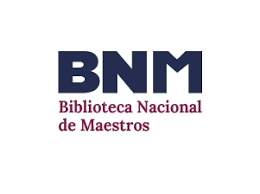EXPERIENCIAS DE FUTUROS PROFESORES DE MATEMÁTICA QUE PRODUCEN PROYECTOS DE MODELIZACIÓN DESDE UNA PERSPECTIVA SOCIO-CRÍTICA
Resumen
Este trabajo presenta resultados parciales provenientes de un proyecto de investigación cuyo objetivo es caracterizar las experiencias vividas por futuros profesores de matemática al trabajar con proyectos de modelización matemática. Se presentan los temas no matemáticos que se seleccionaron libremente y los contenidos matemáticos para diseñar y desarrollar proyectos de modelización matemática. Se analizan aspectos de la perspectiva socio-crítica vinculada con modelización matemática que se hacen evidentes en los proyectos desarrollados. El análisis realizado revela que: (a) las problemáticas seleccionadas pueden ser categorizadas como: socio-económicas, ecológicas, de relevancia personal y focalizadas en aspectos didácticos o matemáticos y (b) los contenidos matemáticos involucrados en los proyectos estaban asociados con estadística, probabilidad y análisis matemático. El estudio de un proyecto particular sobre basura y recolección de residuos reciclables revela características de la perspectiva socio-crítica de la modelización, dificultades en el proceso de modelización matemática y reflexiones educativas.
Descargas
Referencias
Araújo, J. (2012). Ser crítico em projetos de modelagem em uma perspectiva crítica de educação matemática. Boletim de Educação Matemática-BOLEMA, 26, 67–87.
Barbosa, J. (2006). Mathematical modelling in classroom: A socio-critical and discursive perspective. ZDM – The International Journal of Mathematics Education, 38(2), 294–301.
Blum, W. (2002). ICMI Study 14: Applications and modelling in mathematics education–discussion document. Educational Studies in Mathematics, 51(1–2), 149–171.
Caron, F., y Bélair, J. (2007). Exploring university students’ competencies in modelling. En C. Haines, P. Galbraith, W. Blum, y S. Khan (Eds.), Mathematical modelling (ICTMA12): Education, engineering and economics (pp. 120–129). Chichester, Reino Unido: Horwood.
Doerr, H. M. (2007). What knowledge do teachers need for teaching mathematics through applications and modelling? En W. Blum, P. Galbraith, H. Henn, y M. Niss (Eds.), Modelling and applications in mathematics education: The 14th ICMI study (pp. 69–78). New York, USA: Springer.
Esteley, C. (2010). Desarrollo profesional en escenarios de modelización matemática: voces y sentidos. Tesis doctoral. Universidad Nacional de Córdoba, Córdoba.
Greer, B., Verschaffel, L., y Mukhopadhyay, S. (2007). Modelling for life: Mathematics and children’s experience. En W. Blum, P. Galbraith, H. Henn, y M. Niss (Eds.), Modelling and applications in mathematics education: The 14th ICMI study (pp. 89–98). New York, USA: Springer.
Julie, C., y Mudaly, V. (2007). Mathematical modelling of social issues in school mathematics in South Africa. En W. Blum, P. Galbraith, H.-W. Henn, y M. Niss (Eds.), Modelling and applications in mathematics education: The 14th ICMI study (pp. 503–510). New York, USA: Springer.
Kaiser, G., y Sriraman, B. (2006). A global survey of international perspectives on modelling in mathematics education. ZDM – The International Journal on Mathematics Education,38(3), 302–310.
Kaiser, G., van der Kooij, H., y Wake, G. (2013). Educational interfaces between mathematics and industry at school level. En A. Damlanian, J. F. Rodrigues, y R. Sträßer (Eds.), Educational interfaces between mathematics and industry (pp. 263–270). Cham, Alemania: Springer.
Lingefjärd, T. (2007). Modelling in teacher education. En W. Blum, P. L. Galbraith, H. Henn, y M. Niss (Eds.), Modelling and applications in mathematics education (pp. 475–482). New York, USA: Springer.
Ministerio de Educación del Gobierno de la Provincia de Córdoba. Diseño Curricular para el Ciclo Básico 2011-2020. Disponible en: http://www.igualdadycalidadcba.gov.ar/SIPEC-CBA/publicaciones/ EducacionSecundaria/DiseniosCurricSec-v2.php
Muller, E., y Burkhardt, H. (2007). Applications and modelling for mathematics. En W. Blum, P. Galbraith, H. Henn, y M. Niss (Eds.), Modelling and applications in mathematics education: The 14th ICMI study (pp. 267–274). New York, USA: Springer.
Silveira, E., y Caldeira, A. (2012). Modelagem na sala de aula: resistências e obstáculos. Boletim de Educação Matemática-BOLEMA, 26, 249–275.
Skovsmose, O. (1994). Towards a philosophy of critical mathematics education. Dordrecht, Países Bajos: Kluwer.
Skovsmose, O. (2001). Landscapes of investigations. ZDM – The International Journal on Mathematics Education, 33(4), 123–132.
Stillman, G. A., Brown, J. P., y Galbraith, P. (2013a). Challenges in modelling challenges: Intents and purposes. En G. A. Stillman, G. Kaiser, W. Blum, y J. P. Brown (Eds.), Teaching mathematical modelling: Connecting to research and practice (pp. 217–228). Dordrecht, Países Bajos: Springer.
Stillman, G. A., Kaiser, G., Blum, W. y Brown, J. P. (Eds.). (2013b). Teaching mathematical modelling: Connecting to research and practice. New York, USA: Springer.
Villarreal, M., Esteley, C., y Mina, M. (2010). Modeling empowered by information and communication technologies. ZDM – The International Journal on Mathematics Education, 42(3–4), 405–419.
Villarreal, M., y Esteley, C. (2013). Escenarios de modelización y medios: acciones, actividades y diálogos. En M. Borba, y A. Chiari (Eds.), Vinte anos de GPIMEM: um mosaico de pesquisas em movimento (pp. 273–308). São Paulo, Brasil: Editora Livraria da Física.
Widjaja, W. (2013). Building awareness of mathematical modelling in teacher education: A case study in Indonesia. En G. A. Stillman, G. Kaiser, W. Blum, y J. P. Brown (Eds.), Teaching mathematical modelling: Connecting to research and practice (pp. 583–593). Dordrecht, Países Bajos: Springer.
Descargas
Publicado
Número
Sección
Licencia
Política propuesta para revistas que ofrecen acceso abierto
Aquellos autores/as que tengan publicaciones con esta revista, aceptan los términos siguientes:- Los autores/as conservarán sus derechos de autor y garantizarán a la revista el derecho de primera publicación de su obra, el cuál estará simultáneamente sujeto a la Licencia de reconocimiento de Creative Commons CC BY-NC-SA 2.5 AR que permite a terceros compartir la obra siempre que se indique su autor y su primera publicación esta revista.
- Los autores/as podrán adoptar otros acuerdos de licencia no exclusiva de distribución de la versión de la obra publicada (p. ej.: depositarla en un archivo telemático institucional o publicarla en un volumen monográfico) siempre que se indique la publicación inicial en esta revista.
- Se permite y recomienda a los autores/as difundir su obra a través de Internet (p. ej.: en archivos telemáticos institucionales o en su página web) antes y durante el proceso de envío, lo cual puede producir intercambios interesantes y aumentar las citas de la obra publicada. (Véase El efecto del acceso abierto).












